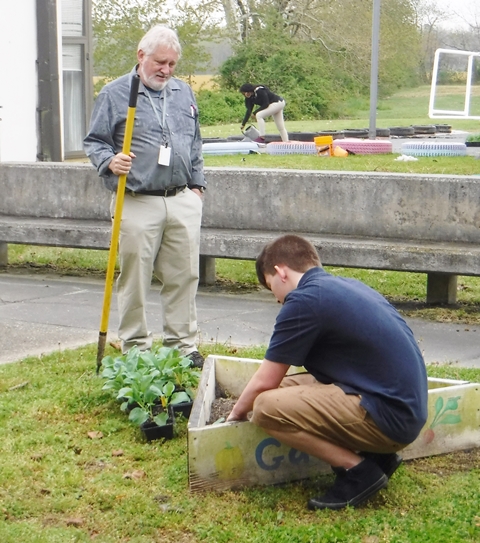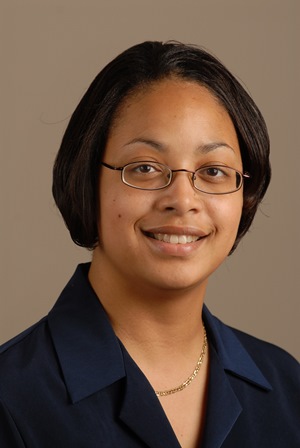
UMES, Marion Sarah Peyton school collaborate on gardening project
Wednesday, June 13, 2018
Somerset County’s Marion Sarah Peyton Adult & Alternative Learning Center focused on food as a school-wide project during 2017-18 academic year, and the University of Maryland Eastern Shore played a supporting role.
It started in September, when educators at the Peyton school helped their students partner with the Maryland Food Bank to launch a satellite food pantry that quickly was assisting some five dozen families, including those with children at other public schools.
Educators at Peyton were keenly aware that some of their own students as well as those at other public schools were not getting substantive meals, especially over the weekend.
“There was need for something …,” assistant principal Rob Hopkins told The Daily Times newspaper, “because if you’re coming in hungry, you can’t function.”
The food pantry project was more than just a convenient place to store and then hand out non-perishable groceries.
School leaders took it upon themselves to show students how to prepare the food they took home. Students also got hands-on experience stacking shelves when food shipments arrived as well as packing carry-home bags distributed Mondays and Wednesdays and boxes on Fridays.
“The students loved the opportunity to give back and volunteer their time to make boxes to send home,” Hopkins said.
The food pantry idea proved so popular, school leaders saw a “teachable moment” and reached out to UMES in November.
Would the university be willing give the Peyton school food project a helping hand with starting a garden?

Enter Corrie Cotton, a research assistant professor in UMES’ Department of Agriculture, Food and Resource Sciences. As her title implies, Cotton has at her disposal a greenhouse she uses for teaching and conducting research.
Cotton saw an opportunity to put the concept of “horticultural therapy” into practice. She donated seeds for what she calls “cool season crops” – two varieties of lettuce, carrots and cauliflower – and got the plants started well before outdoor planting season.
In January, the school acquired used tractor trailer / bus tires to act as raised bed for the student gardeners, who decorated them as a form of art therapy.
Meanwhile, Hopkins said “in science class, we talked about different types of vegetable plants and when each would produce.”
By April, the UMES plants were ready to go outside, so they were handed over to students. (An unseasonably rainy spring was not an inhibiting factor.)
“This project allowed our students to learn how to garden and also find an outlet to use during the school day,” Hopkins said.
Having mature, greenhouse-grown plants provided a hands-on opportunity to nurture the garden before school closes for summer break.
“The students have loved planting their own mini-garden and really enjoyed the growth they witnessed,” Hopkins said. “It has also been a huge help with our autistic population; they love taking their breaks in the garden and watering their plants.”
The lettuce varieties have produced three clippings.
When school breaks for summer vacation June 19, Hopkins said he’s hopeful a local church might be willing to step in and care for the garden, and “take advantage of the crops that continue to produce.”

